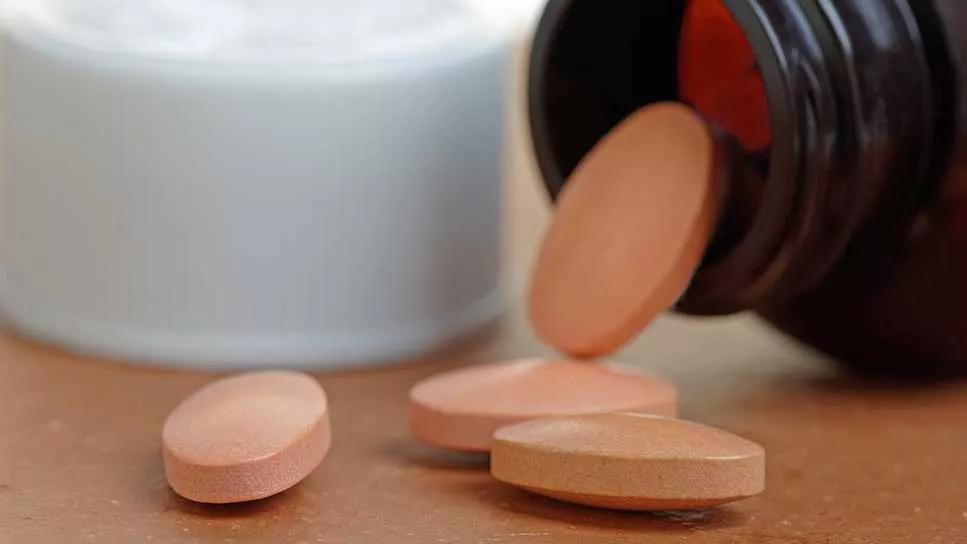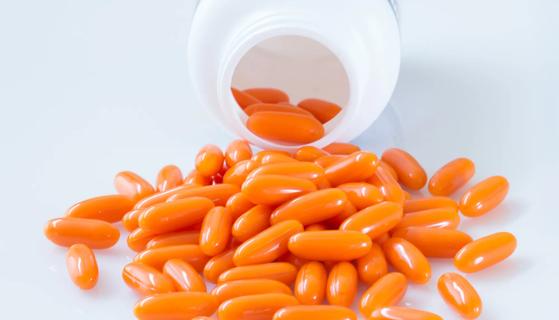Stopping this critical medication on your own increases the risk of heart attack, stroke and more

If you have high cholesterol or you were treated in the hospital for a heart attack, your doctor likely prescribed a cholesterol-lowering medication called a statin.
Advertisement
Cleveland Clinic is a non-profit academic medical center. Advertising on our site helps support our mission. We do not endorse non-Cleveland Clinic products or services. Policy
Statins go by brand names like Lipitor®, Mevacor®, Crestor® and more. They’re a key part of treatment that will help keep your heart healthy.
Statins are some of the most common prescription medications in the United States. But all too often, people stop taking statins on their own, and the side effects can be life-threatening.
Cardiologist Leslie Cho, MD, sees this in her practice. “It happens frequently. People take themselves off statins and don’t tell their healthcare team. But discontinuing these medications without a healthcare provider’s guidance is dangerous and can significantly increase your risk of serious heart events.”
Why do people stop taking statins, and what are the side effects of stopping them? Let’s get to the heart of it.
Statins are typically prescribed to people who have too much “bad” cholesterol (also called LDL or low-density lipoprotein) or who have a history of heart conditions like heart attack or stroke. They’re also used by people who’ve had heart procedures, like stents or bypass surgery.
Statins keep your body from creating cholesterol by blocking a cholesterol-making enzyme from getting to your liver. That’s important because when you have too much bad cholesterol, it builds up inside your arteries. That’s called plaque buildup, and it raises your risk for conditions like heart attack, stroke and heart disease.
Advertisement
Often, people think of high cholesterol as an effect of eating a poor diet. But that’s not the full story. Your body creates 75% of your cholesterol itself. The remaining 25% comes from your diet. Statins stop your body from making cholesterol, and that makes a big difference.
When you stop taking statins, your body goes back to making cholesterol.
“If you stop taking cholesterol medicine, your cholesterol will rise again, and that means you have an increased risk of very serious complications,” Dr. Cho warns.
Researchers have shown that when people stop taking statins, they have a much higher likelihood of major heart events, including:
People who are taking a statin after already having a heart event, like a heart attack, stroke or heart surgery, are at the highest risk for these serious side effects. But the risk is still high for anyone who stops taking statins.
Dr. Cho recommends that anyone who’s prescribed a statin for any reason should keep taking it unless directed by a healthcare provider, like a cardiologist. “These are life-threatening outcomes that can be avoided by taking your medication as prescribed.”
Some people can lower their LDL cholesterol with lifestyle changes, like following a heart-healthy diet, exercising regularly and quitting smoking.
But your genetics matter, too. Some people’s bodies just create more cholesterol than others. So, not everyone can diet and exercise their way to a healthier cholesterol number.
“Some people have high cholesterol and when they change their diet, their cholesterol level goes down, and they may not need statins,” Dr. Cho clarifies. “But for most people with high cholesterol, their body makes a lot more cholesterol than they need. And even if they change their diet, their cholesterol numbers don’t change much. In those cases, we turn to cholesterol-lowering medicine.”
Even while taking statins, it’s important to keep up with regular exercise and to follow a heart-healthy diet — more fruits, vegetables, lean meats and unsaturated fats. But you may still need medications to keep your cholesterol at a safe level.
Talk with your healthcare provider about your lifestyle changes and their potential to affect your cholesterol before discontinuing statins on your own.
It can be tempting to consider stopping statins if your cholesterol reaches normal limits. But chances are it’s because of the statins that your cholesterol is under control.
Advertisement
Statins aren’t like antibiotics. You take antibiotics for a few days until they knock out the bacteria that invaded your immune system. And then, you’re done with the meds.
That’s not the case with statins. Statins don’t just kick out your cholesterol and reset you back to normal. They continue to work, day in and day out, to fight inflammation and to keep your body from making too much cholesterol. Because of that, statins are an ongoing medication for most people.
If you stop taking statins, your cholesterol will very likely increase to its original level (or even higher). And you’ll be at higher risk for major heart events.
When you’re prescribed a medication, like a statin, it’s because your healthcare provider believes it will help you. They’re trying to keep you healthy.
But some studies estimate that 20% of people who are prescribed statins stop taking them.
Why people stop statins is a personal decision, but Dr. Cho says it usually comes back to a few typical reasons.
A common concern among people is that they want to take less medicine. Or as Dr. Cho says, “A lot of people stop taking statins because they think it’s an almost moral failing to be on medication. And it’s really not.”
Advertisement
Remember, even extreme changes to your diet aren’t likely to change the fact that your body is making more cholesterol. Even getting into tip-top physical shape doesn’t guarantee that you won’t need to take a statin. It’s just not something most people can control.
“I tell people that my goal is to prevent you from having a heart attack or stroke and to not die,” Dr. Cho emphasizes. “If we can do it with less medication, great. But the goal isn’t less medication. The goal is preventing serious consequences.”
Some people stop taking statins because they experience side effects that they don’t like, most notably muscle pains and joint aches. Some people may also experience nausea.
Rather than discontinuing medications because of side effects, Dr. Cho urges people to talk with their healthcare provider about their symptoms.
“There are other types of statins and other dosages that you and your cardiologist can try to reduce or eliminate those side effects,” she stresses.
Statins are an important and necessary part of many, many people’s heart-healthy regimens. There’s no safe way to stop taking statins without first consulting with your healthcare provider.
“High cholesterol is a silent killer because you won’t feel anything until something extreme happens,” Dr. Cho emphasizes. “Keep taking your statins. Stay well.”
Advertisement
Learn more about our editorial process.
Advertisement

You may notice a decrease in your LDL ‘bad’ cholesterol in about four weeks

In the world of cholesterol, HDL particles are ‘good’ and LDL particles are ‘bad’ for your heart health

Medications known as statins can lower cholesterol levels to minimize the risk of blocked arteries

Fatty fish, flaxseed, extra virgin olive oil and nuts may help raise your HDL number

Grapefruit contains natural chemical compounds that can interfere with certain medications when it’s consumed in large amounts

Up to 30% of people who take the cholesterol-lowering medication feel aches and soreness

There’s not enough evidence to show that this supplement has any effect on muscle aches from cholesterol-lowering meds

There’s no limit on the amount you should have each day, but experts are focused on saturated fat

Wearing a scarf, adjusting your outdoor activities and following your asthma treatment plan can help limit breathing problems

Your diet in the weeks, days and hours ahead of your race can power you to the finish line

When someone guilt trips you, they’re using emotionally manipulative behavior to try to get you to act a certain way